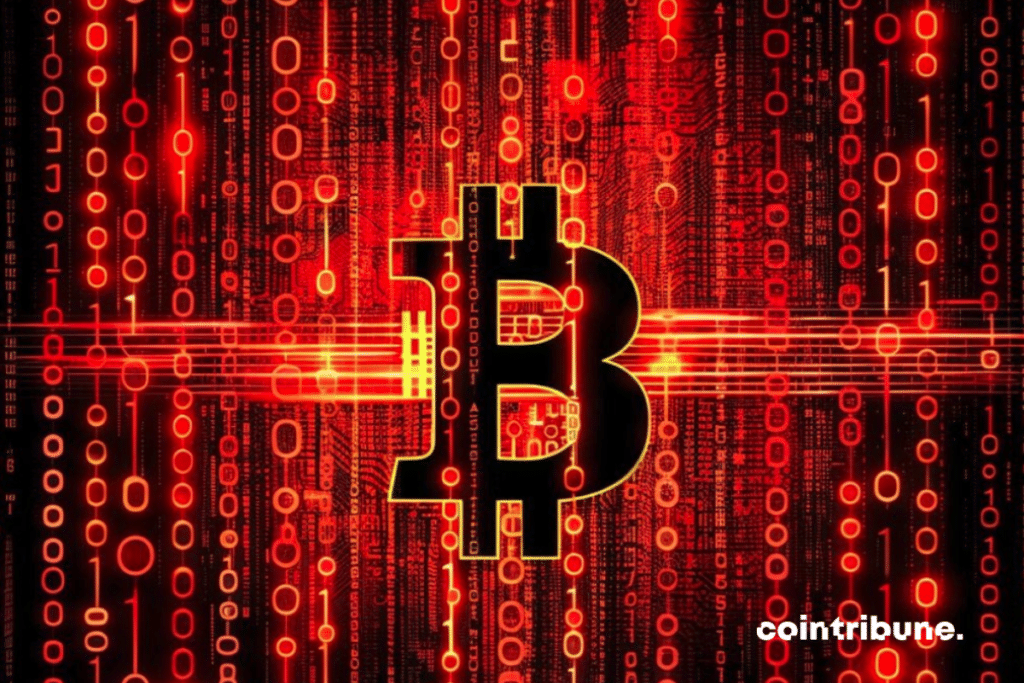Do Not Buy Gold!
“`html

Have you ever been advised to buy gold to protect against inflation? You might want to read this article.
A Significant Difference
The supply of bitcoins is absolutely limited. But gold is only relatively rare.
Indeed, bitcoin (also known as digital gold) is capped at 21 million BTC, and nothing can ever change this limit. Moreover, bitcoins that have been lost make them even more scarce.
This is one of the reasons why bitcoin is often referred to as digital gold. It leverages 21st-century technology to mimic the valuable properties of physical gold from the past.
Although both types of gold can convincingly serve as a store of value, there are also significant differences between the two.
Despite the similarities between bitcoin and physical gold, bitcoin is superior because of its truly limited supply. There will never be more than 21 million bitcoins, making it a superior asset.
Bitcoin and Digital Gold?
One of the main reasons bitcoin is often dubbed digital gold is its ability to leverage 21st-century technology to replicate the valuable properties of physical gold. This innovative approach sets bitcoin apart, impressing with its capacity to adapt and evolve in the digital era.
Gold is not just any ordinary product either. While many think that gold is limited, in reality, gold mining activities can alter the supply. For example, the gold discovered in Uganda in 2022 nearly matched the total amount of gold above ground at that time.
Bitcoin and Volatility
Bitcoin has certainly experienced its share of volatility (particularly in its early years of existence), yet its value has generally tended to increase over time, as it has become more widely adopted. On average, it has returned 671% annually (as of February 2024) since its creation.
The reason for this growth: proponents of digital gold believe it is a better store of value and a better protection against inflation than physical gold.
Gold has proven to be a relatively reliable investment over time and is often regarded as a safe haven in times of market volatility.
Peter Burns writes in Money: “Gold is not an asset that generates income, but it can serve as a store of value when its price appreciates over time. The average annual return of gold globally between 1971 (the year the United States stopped pegging the price of gold to the dollar) and 2022 was 7.78%.”
In the meantime, the value of bitcoin has soared.
Factors Affecting the Price of BTC
The Role of Demand
As with any other asset, the value of bitcoin is influenced by the secular forces of supply and demand. By definition, supply is always finite, so its value increases as demand grows.
The bitcoin issuance schedule is unaffected by price and demand, remaining constant regardless of market dynamics.
Geopolitics
The value of digital gold rises in response to positive news, adoption by major corporations, and regulatory endorsements that bolster investor confidence. Conversely, negative news, security breaches, or regulatory clampdowns can drive bitcoin prices down.
Inflation rates, economic stability, political uncertainty, or currency fluctuations can all influence the perceived value of bitcoin as a store of wealth or hedge against traditional financial systems.
Halving
Bitcoin’s supply is finite, with a total cap of 21 million tokens. Periodic events known as “halvings” occur about every four years, reducing the rate at which new bitcoins are created. Historically, this phenomenon has preceded bitcoin bull markets.
Factors Affecting the Price of Gold
The Role of Supply and Demand
Like bitcoin, the price of gold is influenced by supply and demand in the global market. When demand outweighs supply, the price tends to rise. One of the main differences is that this can lead to an increase in gold mining and production. Bitcoin, on the other hand, has a fixed limit.
Investor Sentiment
Gold is often seen as a safe haven in times of economic uncertainty or market volatility. This rise (or decline) in uncertainty can affect its value.
Interest Rates and Inflation
When interest rates are low (or inflation is high), investors may turn to gold as an alternative investment, which can push its value up.
Exchange Rates
Fluctuations in exchange rates can affect the price of gold. When the value of a currency decreases compared to other world currencies, the cost of gold in that currency can rise.
Central Bank
Central banks often hold large amounts of gold in reserve. The buying or selling of gold reserves by central banks can have an impact on the supply and demand dynamics in the market.
Industry
The demand for gold for jewelry and other industries can also impact its value.
Bitcoin and the 21 Million Limit
The existence of a predictable supply prevents inflation and ensures that an asset retains its value.
Bitcoin has a finite and capped supply – only 21 million units will ever exist since this supply cap is hardcoded into the rules of its underlying protocol. The finite supply is key to bitcoin’s long-term value.
Gold is also rare because it is hard to find and is usually only available in low concentrations, as it requires processing a large amount of rock to obtain.
The scarcity of gold, its non-renewable nature, and the difficulties encountered in its extraction largely explain gold’s value.
However, the amount of gold available at any one time fluctuates. Investment researcher Nathan Lewis writes: “In terms of availability, [gold] is very abundant. We actually have twice as much gold above ground today than when the world left the gold standard in 1971. We have seven times more than in 1910″.
Bad news for gold’s ability to serve as a store of value: In June 2022, Ugandan authorities revealed a significant discovery of about 31 million tonnes of gold ore in the country (320,158 tonnes of refined gold). The approximate value of this ore was 12 trillion dollars.
This single discovery represents more than the total amount of gold above ground accounted for in the total supply. As this gold continues to be recovered, it will significantly dilute the scarcity properties of physical gold.
Bitcoin and Divisibility
High divisibility allows for dividing an asset into smaller units, which facilitates transactions of any amount.
Bitcoin is far more divisible than most currencies. A single bitcoin can be divided to eight decimal places, with units called satoshis. This allows for cost control.
When you divide gold into small quantities, you will pay more. One-hundredth of an ounce of gold can cost about $35 online, which equates to a gold price of $3,500 per ounce, representing a markup of 75% over the actual price of gold at that time.
Buy BTC, Not Gold
Consider your personal preferences and risk tolerance when contemplating the choice between bitcoin and gold. If you enjoy technology and are comfortable with the digital world, bitcoin may be a perfect fit for you.
Gold may be a better choice if you want physical currency and prefer tangibility.
Diversification is still an option. Consider allocating a portion of your wealth to digital gold, which offers liquidity, ease of transfer, and growth potential. Add some physical gold to add an extra layer of stability and to safeguard against economic uncertainties and bitcoin’s volatility.
Michael Saylor, founder of MicroStrategy, states:
“Bitcoin is more efficient than gold. It is more efficient than fiat currency. It is more efficient than storing your money in an Airbnb-rented apartment. It’s simply the most efficient energy system, and rational people around the world are looking at it and thinking: ‘Why wouldn’t I want to store my money in a property that is the supreme property of the human race?’
Jurrien Timmer, director of Global Macro at Fidelity, has found that an allocation of just 1% of a traditional portfolio to bitcoin produced effects similar to a 4% allocation to gold. In other words, by including bitcoin, investors could potentially do more with less in their “store of value” portfolio allocations.
The team at Cathie Wood’s Ark Invest discovered that the optimal allocation to bitcoin is 19.4%.
Bitcoin is gaining popularity as a long-term investment option and could outperform gold. However, do your own research, assess your risk tolerance, and invest accordingly.
Maximize your Cointribune experience with our "Read to Earn" program! For every article you read, earn points and access exclusive rewards. Sign up now and start earning benefits.

Chaque jour, j’essaie d’enrichir mes connaissances sur cette révolution qui permettra à l’humanité d’avancer dans sa conquête de liberté.
The views, thoughts, and opinions expressed in this article belong solely to the author, and should not be taken as investment advice. Do your own research before taking any investment decisions.